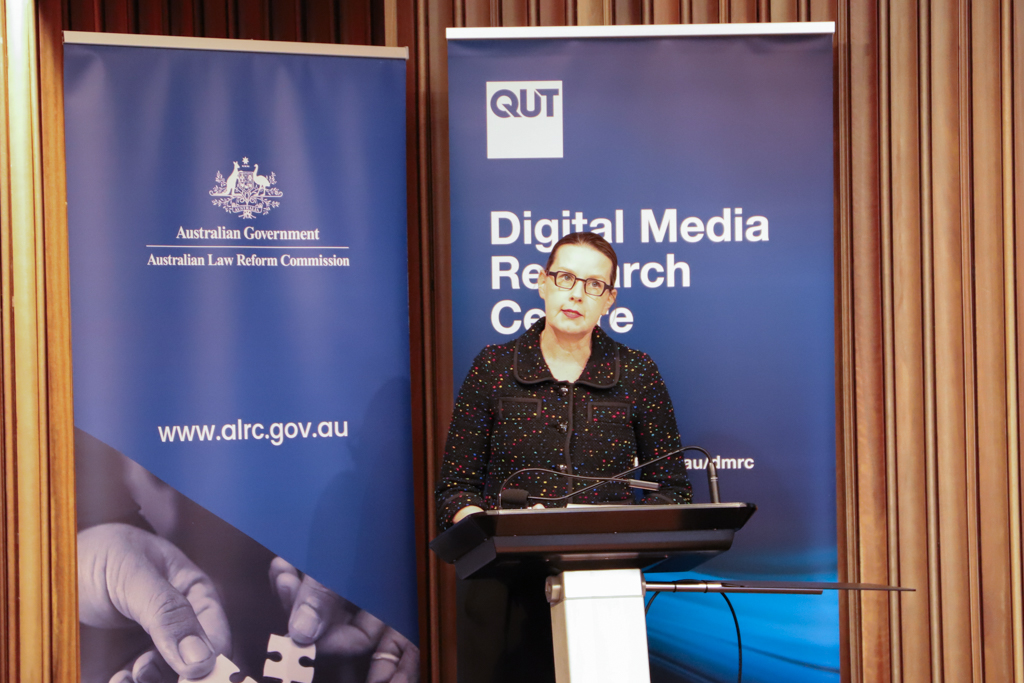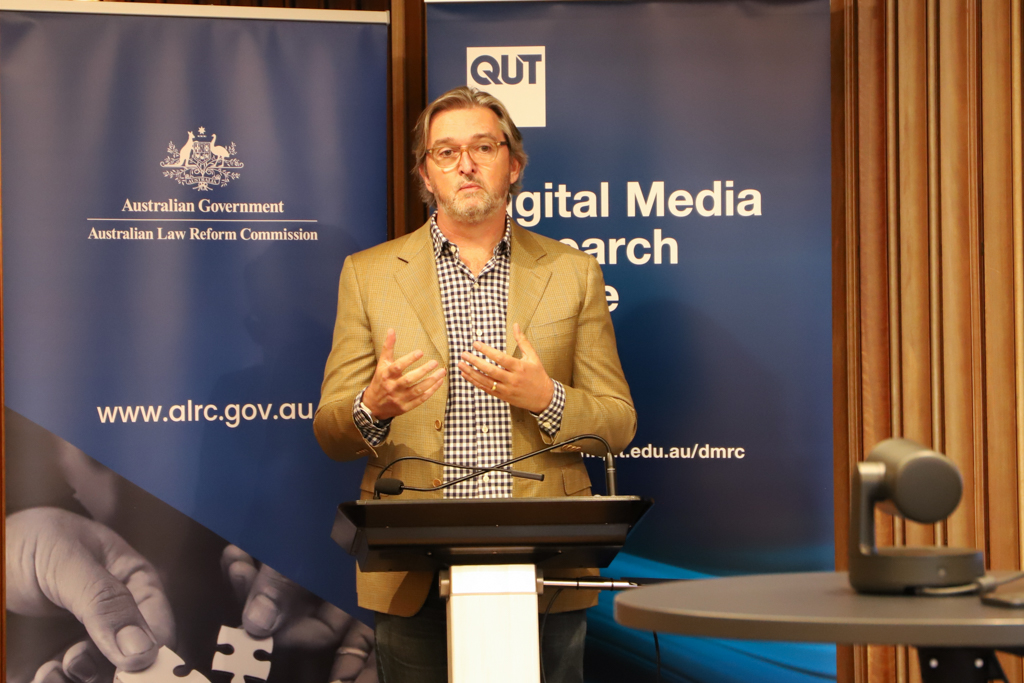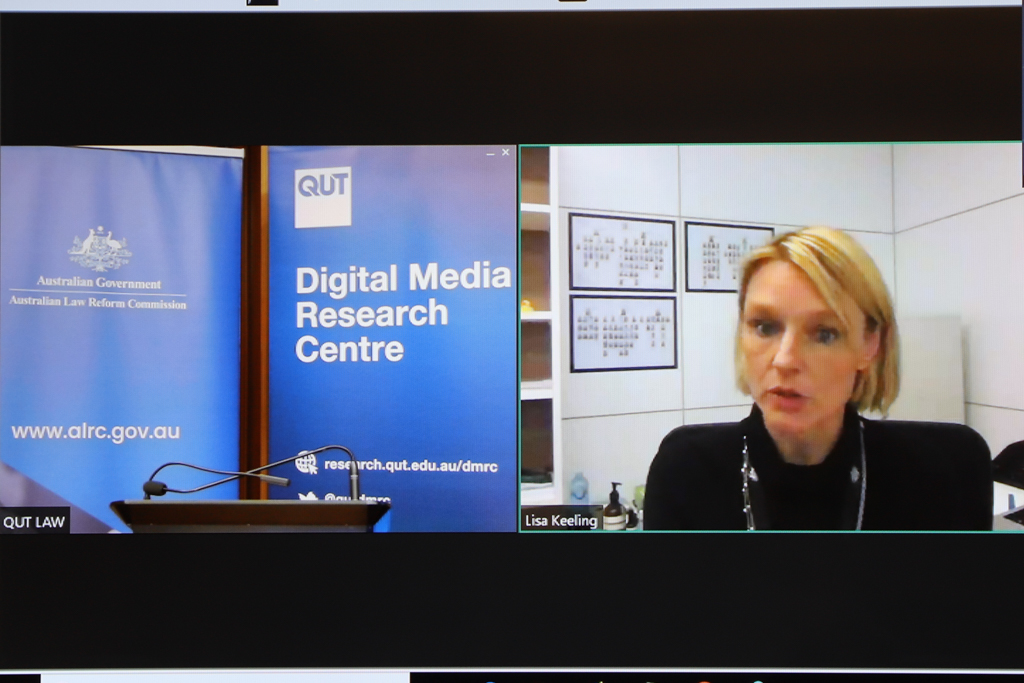13.08.2020
On Monday 10 August 2020 the Australian Law Reform Commission, co-hosted with the Queensland University of Technology and the ARC Centre of Excellence for Automated Decision-Making and Society, a webinar with a panel of experts discussing the potential for a future ALRC inquiry into automated decision making and administrative law. Over 300 people viewed the event “live” and hundreds more have registered to view the recording at a later time. The live streaming of the webinar, facilitated by Wolters Kluwer CCH Learning, provided the opportunity for a nationwide, interactive conversation, with questions welcomed on registration and taken during the event.
- Webinar panel
- The Hon Justice SC Derrington
A multiple choice poll question posed at the outset revealed that a majority of online participants felt that the “transparency of algorithms used by government” is the most important reason that law reform is needed in this area. Fewer participants felt that “review mechanisms for administrative decisions”, and the “collection and use of personal data by government”, demonstrated the need for law reform.
Interestingly, Professor Dan Hunter of the ARC Centre of Excellence for Automated Decision-Making and Society, indicated that developments in “data-driven machine learning” mean that the data that is used to “train” automated systems has become more important than the algorithms themselves. If the data used is in some way discriminatory, then the automated system will be more likely to make discriminatory decisions. The same developments have also made it more difficult for automated systems to “explain” the decisions they make, presenting significant problems from the perspective of administrative law. Ultimately, he urged us not to judge automated systems by the standard of perfection, but rather in comparison to human decision making systems, which are also not perfect.
Professor Marek Kowalkiewicz of QUT Business School emphasised that “the future is already here”, in that we are all subject to automated decisions by government, often without realising it. He explained that automation can be conceptualised in different “levels” (as it is with different types of automated cars), and suggested that new categories could be created so that we better understand what levels of automation are being used for particular government decisions. He also noted that:
- the scale of decision making enabled by automation means that small errors can have large consequences;
- the speed of automated decision making can lead to bottlenecks and delays at other points of a governmental process; and
- automation can reduce uncertainty in a process, which can have both advantages and disadvantages.
- Professor Dan Hunter
- Professor Marek Kowalkiewicz
Dr Anna Huggins of QUT Law Faculty noted the importance of administrative law in promoting executive accountability and protecting individual rights and interests, and the challenges posed by automation. For example, there are risks that statutory meaning may be lost or distorted during the process of turning legislation into machine-readable code. Law reform could address important questions, such as: Should there be regulatory oversight of “high stakes” automated systems before they are implemented? Should administrative law require human oversight for some types of decisions? How could administrative law ensure that automated decisions can be contested?
Lisa Keeling of Services Australia highlighted the scale of the agency’s operations, including processing many millions of applications each year for government payments. Consequently, government needs to embrace automation from a customer service perspective. Automation can provide greater speed, predictability, and transparency for customers, and may be the most appropriate form of decision making particularly in “simple cases”, rather than “complex cases” (although the distinction may not always be clear cut). Government also needs to engage upfront with the risks of automation to ensure decisions are lawful and there is a natural justice process in place for errors made. Law reform could provide a more principled approach to the question of which legislative provisions should grant some discretion to the decision maker, and which provisions should be more “binary” to enable greater automation.
- Dr Anna Huggins
- Lisa Keeling
A number of questions from the participants were put to the panel, and discussion points included:
- important elements of authorising legislation for automated decision making;
- the role of education in enabling lawyers and judges to understand automated systems better;
- how to identify the responsible entity for “bad” decisions;
- appropriate legal requirements for explanations of decisions, and for audits of algorithms;
- how group-based decisions and systemic issues might be better addressed by administrative law and by courts;
- transparency and independent scrutiny of government’s use of personal data;
- comparisons between the way machine-learning systems vary their behaviour over time, and the way the common law varies over time; and
- the potential value of inquiring into the overall governance system for automated decision making, rather than the detail of individual laws.
Further comments on the need for an inquiry into this topic and other suggested topics closed on 31 August 2020.
View the recording of the Automated Decision Making and Administrative Law webinar.
View the recordings from the webinar series:






